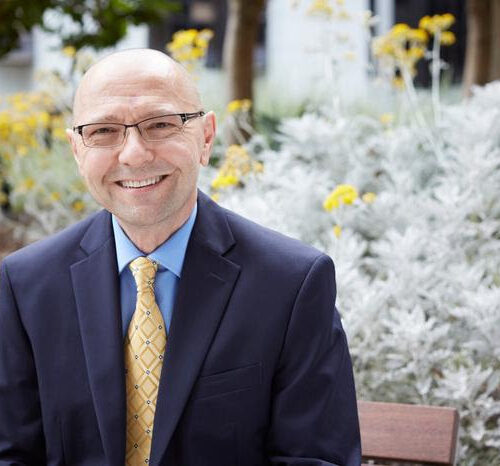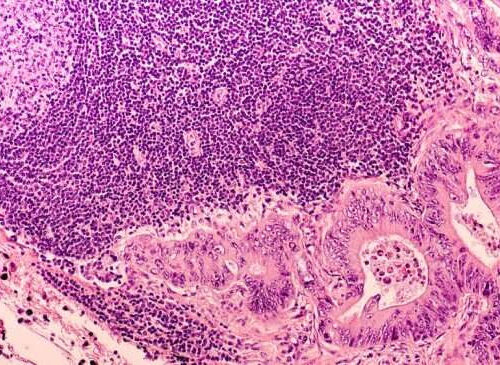CEDARS-SINAI MEDICAL CENTER IMAGE: DAN THEODORESCU, MD, PHD, DIRECTOR OF CEDARS-SINAI CANCER, THE PHASE ONE DISTINGUISHED CHAIR CREDIT: CEDARS-SINAI MEDICAL CENTER As men age, some of their cells lose the very thing that makes them biological males—the Y chromosome—and this loss hampers the body’s ability to fight cancer, according to new research from Cedars-Sinai Cancer. The study, published...
Biodegradable gel shows promise for cartilage regeneration
UNIVERSITY OF BRITISH COLUMBIA IMAGE: DR. LINGLAN FU HOLDING THE HYDROGEL CREDIT: ALEX WALLS A gel that combines both stiffness and toughness is a step forward in the bid to create biodegradable implants for joint injuries, according to new UBC research. Mimicking articular cartilage, found in our knee and hip joints, is challenging. This cartilage is...
Researchers reveal mechanism of protection against breast and ovarian cancer
THE FRANCIS CRICK INSTITUTE In a new paper published today in Nature, researchers at the Francis Crick Institute have outlined the structure and function of a protein complex which is required to repair damaged DNA and protect against cancer. Every time a cell replicates, mistakes can happen in the form of mutations, but specialised proteins exist to repair...
Study hints at how cancer immunotherapy can be safer
YALE UNIVERSITY New Haven, Conn. — Cancer immunotherapy has revolutionized treatment of many forms of cancer by unleashing the immune system response against tumors. Immunotherapies that block checkpoint receptors like PD-1, proteins that limit the capacity of T cells to attack tumors, have become the choice for the treatment of numerous types of solid cancer. However,...
Nanotechnology can provide more effective treatment for patients with peritoneal cancer
by Steinar Brandslet, Norwegian University of Science and Technology Nanoencapsulation increases the time that the drug (green) is in the peritoneal cavity (pink), compared to when the drug is injected freely. Credit: Astrid Hyldbakk, BioRender Researchers have found that nanotechnology can increase chemotherapy’s effectiveness. The new research could be good news for people who develop peritoneal cancer in the...
Researchers discover how bowel cancer ‘blinds’ the immune system
by University of Glasgow Microscopic image of an intestinal lymph node involved by metastatic colon cancer (colonic adenocarcinoma). Credit: Shutterstock A mystery which has stumped bowel cancer researchers for decades, has been solved by scientists at the Cancer Research UK Beatson Institute and University of Glasgow. Generations of doctors and researchers have struggled to understand why a bowel...
Study gives new insight into how cancer metastasizes to the brain
by The Wistar Institute IFN signaling is activated in brain metastasis. a–c IFN signaling is activated in both human astrocytes and MDA231-BrM cells by coculture in vitro. N = 2 biologically independent experiments per condition. a Scheme of RNA sequencing experiment setup. b Ingenuity Pathway analysis (IPA) comparing BrM-induced changes in astrocytes and astrocyte-induced changes in BrM cells. c Heatmaps of genes in IFN signaling pathway from...
Researchers identify new biomarkers of the most frequent lung cancer
by University of Barcelona The experts have developed and validated a new tecnique to quantitative analyze collagen fibers in tissue samples from patients with non-small cell lung cancer. Credit: University of Barcelona Researchers of the University of Barcelona and the Institute of Bioengineering of Catalonia (IBEC) have identified new biomarkers for non-small cell lung cancer, the most...
Silicon nose: Small sensor ‘smells’ incipient seizures
by Mollie Rappe, Sandia National Laboratories A Sandia National Laboratories researcher works on a miniaturized sensor system able to detect specific gases warning of an impending seizure. Credit: Craig Fritz In people with epilepsy, seizure-alert dogs can smell small changes in body chemistry and warn of an impending seizure an hour or more before it occurs....
Researchers reverse stunting in children, challenging WHO recommendations
by University of Copenhagen The children where followed by health professionals at health centers set up in eastern Uganda. Credit: Jack I. Lewis, University of Copenhagen. At present the WHO does not recommend nutrient supplements for children with stunted growth—a health problem that affects more than one in five children under the age of 5 globally....








